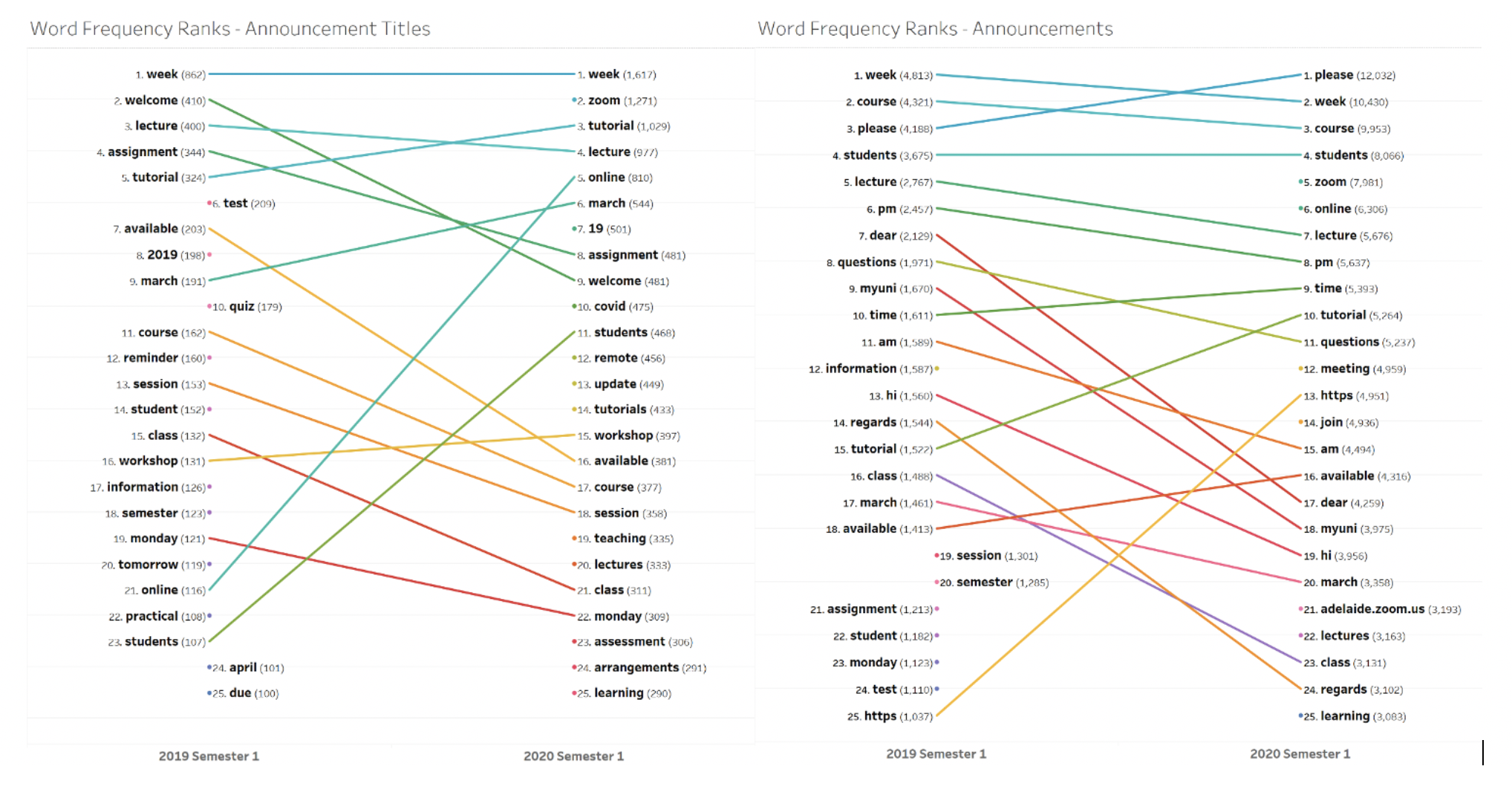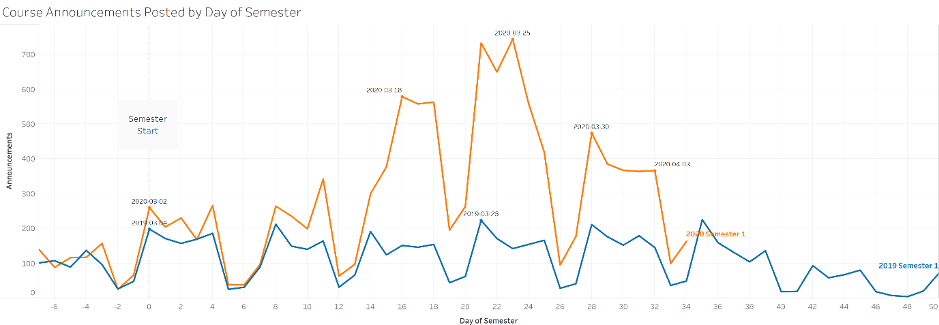How to effectively use MyUni Course Announcements

Written by Hugh Leadbeter
During the present times of purely remote learning, it is increasingly important for students to receive personalised, relevant messaging from their course coordinators, lecturers and tutors. Personalised messaging in particular has been shown to increase student engagement, and provide a more emotional connection.
Recently conducted analysis into course messaging delivered the two graphs below. These show the frequency of words used in course announcements and the announcement titles for the current semester, compared to Semester 1, 2019.
It is encouraging to see that, this semester, there has been a significant increase in phrases such as online, zoom, and meeting – indicating that teaching staff are using announcements to inform students of new online practices for lectures and tutorials.
A key source of concern for students remains to be how assessment tasks will be affected by these new online practices. Phrases regarding assessment rank lower (23rd in announcement titles, and outside the top 25 for announcement content), potentially indicating that these announcements generally occur later, or via other means such as email. With the move to online learning, students will need a clear overview of changes that may be occurring to assessment pieces throughout the course. The earlier the students are made aware of these changes, the better they can make informed decisions around preparing for those assessment pieces.
All courses should by now have had the remote learning pages updated to reflect any changes to assessment strategies, but this does not negate the need to personally message students to ensure that they are aware of changes.
Another consideration for teaching staff is the number of announcements students are receiving regarding new information and numerous changes to ways of learning.
The above graph displays the number of announcements made per day this semester (orange) compared to Semester 1, 2019 (blue). Over the past few weeks, students have been receiving up to five times the number of announcements they would be accustomed to receiving at this point in the semester.
It is therefore vital for teaching staff to take the following into consideration:
- Personalising announcements (dear students, hi everyone, regards) Students are more likely to interact and engage when messaging is personalised and relevant.
- Method of delivery – is this best delivered as an announcement? Should it be an email, or posted as a page/module that students can easily refer back to?
- Timing of messaging – what key times are the students online? (Learning Analytics can help identify hot spots of online activity in your courses, contact us here to find out more) Are the course messages planned, staggered and time relevant? Are students being bombarded with numerous announcements at once? Planning announcements in advance can help mitigate this. It is also worth noting that students will likely be expecting more announcements during these times, so more is not always bad as the context demands it – the key is keeping them personal and relevant.
The above considerations can help to make messaging more relevant and personal, to ensure students are receiving the vital information that they need.
More about the data
Data extracted from Canvas for published 2019 Semester 1 and 2020 Semester 1 courses. Data presented is as of Sunday 5 April 2020, day 34 of 2020 Semester 1.
Course Announcements Posted by Day of Semester shows the number published announcements posted on each day of the semester for 2019 Semester 1 and 2020 Semester 1.
Word Frequency Ranks – Announcements and Word Frequency Ranks – Announcement Titles show the most frequently used words in course announcement message content and message titles published up to and including day 34 of the semester, for 2019 Semester 1 and 2020 Semester 1 (5 April 2020 for 2020 Semester 1 and 7 April 2019 for 2019 Semester 1). The top 25 words by frequency of use are shown for each semester. Common English stop words are excluded (e.g. the, a, so, is, it, just, of).
Looking for more support with Learning Analytics?
Please contact the Learning Analytics team: learn_analytics@adelaide.edu.au


